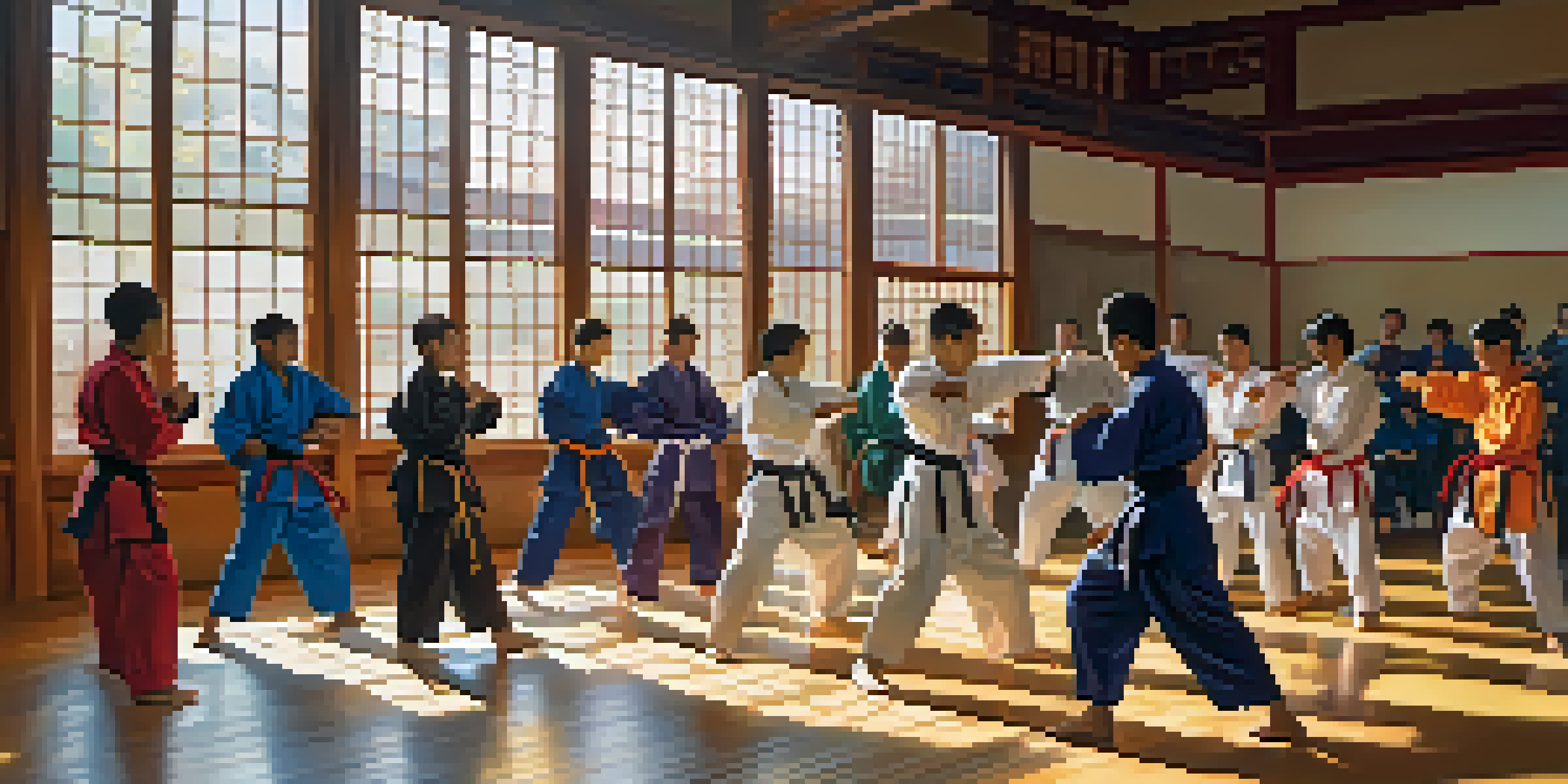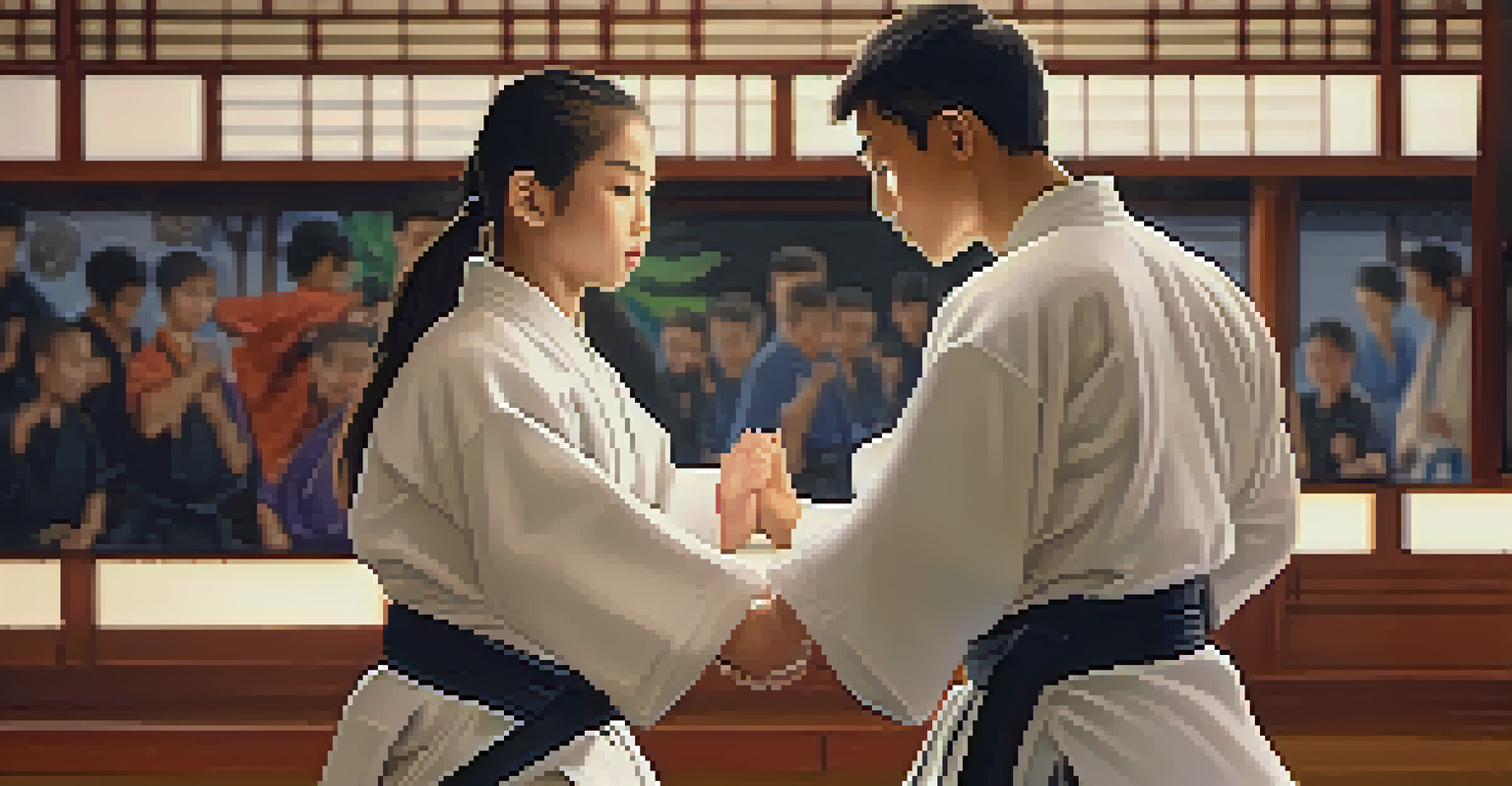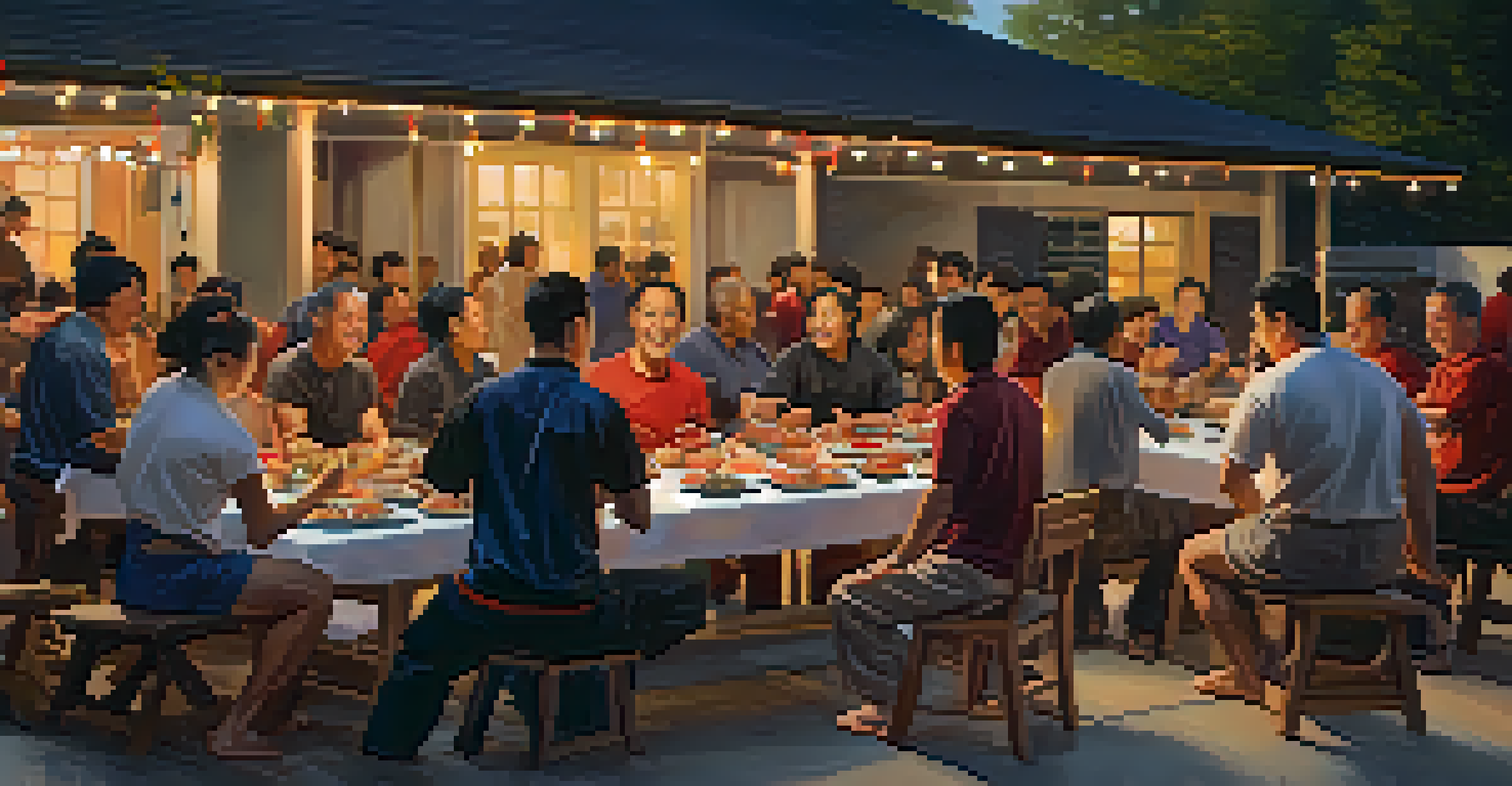Building Lifelong Friendships Through Martial Arts Training

The Social Aspect of Martial Arts Training
Martial arts training is not just about physical skills; it's also a social experience. When you step onto the mat, you're joining a community of like-minded individuals who share a passion for self-improvement. This environment naturally fosters friendships as everyone works towards common goals.
Martial arts are not about the martial arts; they are about the people you meet and the friendships you cultivate.
Training together creates a unique bond. Whether you're sparring, practicing techniques, or cheering each other on during a grading, these shared experiences help build trust and camaraderie. It's often said that the dojo becomes like a second home, where friendships flourish.
Moreover, the diversity within martial arts classes means you meet people from various backgrounds and walks of life. This exposure not only broadens your social circle but also enhances your understanding of different cultures, ultimately enriching your life.
Shared Challenges Create Strong Bonds
Facing challenges together is a powerful catalyst for friendship. In martial arts, whether it's mastering a difficult technique or preparing for a competition, the hurdles you encounter require teamwork and support. This shared struggle fosters a deeper connection between training partners.

When you see someone push through their limits or overcome fear, it inspires you to do the same. Celebrating these small victories together reinforces relationships, creating a sense of belonging. It’s these moments that turn acquaintances into lifelong friends.
Community and Friendship in Training
Martial arts training fosters a strong sense of community, leading to meaningful friendships among practitioners.
Additionally, overcoming physical and mental challenges alongside others strengthens the trust and loyalty in those friendships. Knowing someone has your back during tough training sessions builds a bond that often extends beyond the dojo.
The Importance of Respect and Discipline
Martial arts is built on a foundation of respect and discipline, which naturally translates into the friendships formed within its practice. As you bow to your instructor and fellow students, you're not just acknowledging their presence; you're cultivating a culture of mutual respect.
The bond you create through shared struggles and victories is what makes martial arts a journey of a lifetime.
This respect is vital in forging strong relationships. It teaches you to appreciate your training partners, recognizing their efforts and dedication. Such an environment encourages open communication and fosters friendships that are built on trust and support.
Moreover, the discipline learned through martial arts extends to how you treat your friends. The values of patience, humility, and perseverance become integral in nurturing and maintaining these relationships, ensuring they stand the test of time.
Creating a Supportive Community
One of the most beautiful aspects of martial arts is the sense of community it fosters. In a dojo, you’re not just part of a class; you’re part of a family that celebrates each member's growth and achievements. This supportive atmosphere is essential for building lasting friendships.
Events like competitions, seminars, and social gatherings further strengthen these bonds. When you train together outside of regular classes, it deepens your connections and provides opportunities to interact in a more relaxed setting. These shared moments often lead to friendships that last a lifetime.
Shared Challenges Build Bonds
Facing challenges together in martial arts strengthens connections, transforming acquaintances into lifelong friends.
Additionally, a strong community encourages members to support one another in their personal lives. Whether it's attending a friend's graduation or helping each other through tough times, the friendships formed in martial arts extend well beyond the dojo.
The Role of Mentorship in Friendships
In martial arts, the relationship between student and instructor often evolves into a mentorship. This dynamic is not only beneficial for skill development but also for forming deep, lasting friendships. Mentors can guide you through both your martial arts journey and personal challenges.
As students progress, they often find themselves forming bonds with their instructors based on mutual respect and shared experiences. This connection can lead to a friendship that offers valuable life lessons and support beyond the training mat.
Moreover, mentoring relationships can also extend among peers. More experienced students often guide beginners, fostering an atmosphere of teamwork and cooperation that cultivates friendships across different skill levels.
Bonding Through Fun and Social Events
While training hard is essential, enjoying fun activities together is equally important. Many martial arts schools organize social events, such as movie nights, barbecues, or holiday celebrations, which provide a relaxed environment for students to bond outside of training.
These gatherings allow members to connect on a personal level, often leading to conversations and laughter that strengthen friendships. Shared interests and experiences outside of martial arts can create common ground that enriches these relationships.
Mentorship Cultivates Lasting Ties
The mentor-student relationship in martial arts often evolves into deep friendships that extend beyond training.
Furthermore, participating in team-building activities, such as group challenges or retreats, can solidify the friendships made during training. These fun moments are just as crucial in building a supportive community where lasting friendships can thrive.
Lifelong Friendships Beyond the Dojo
The friendships formed through martial arts often transcend the walls of the dojo. Many practitioners find themselves sharing life milestones, from weddings to births, with their training partners. This shared journey creates a unique bond that few other activities can replicate.
As you and your friends navigate life's challenges together, the skills learned in martial arts, such as resilience and support, become invaluable. These friendships can serve as a strong support system, providing encouragement during tough times.

Ultimately, the friendships formed in martial arts are about more than just shared experiences; they’re about building a network of support and encouragement that lasts a lifetime. It’s a testament to how martial arts can enrich our lives beyond physical training.